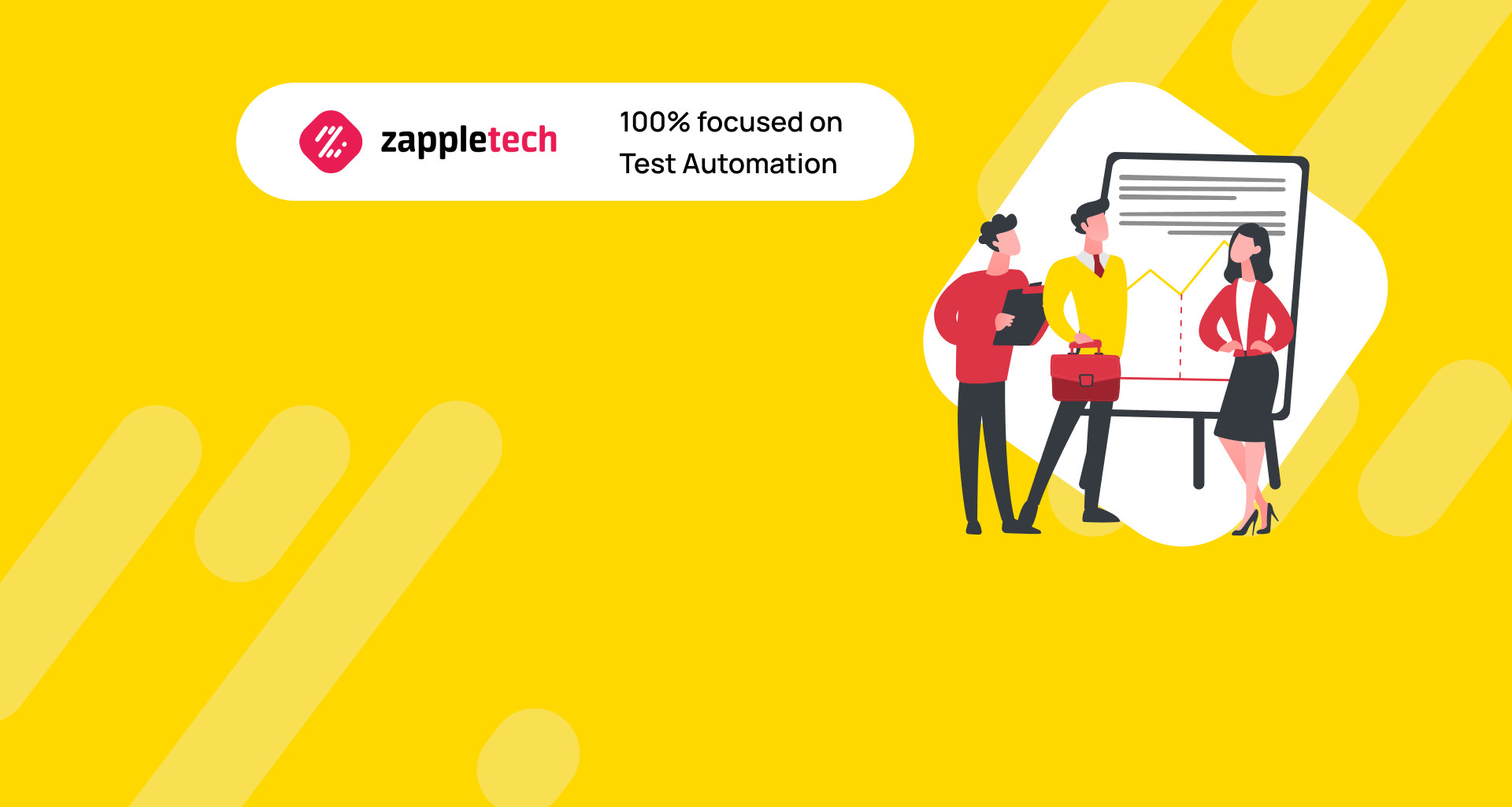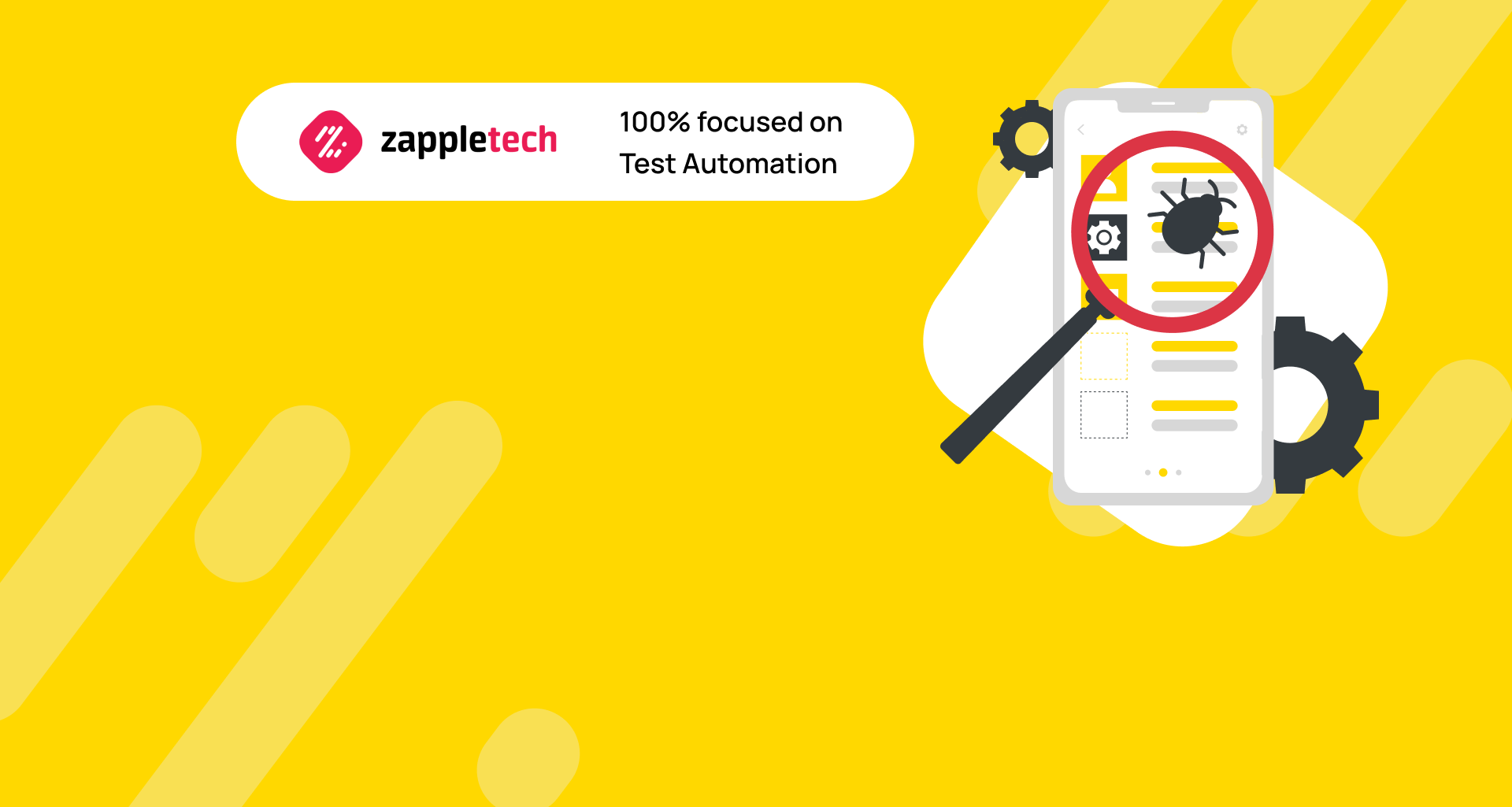Outsourcing software testing offers numerous benefits to businesses facing resource constraints or seeking specialized expertise. By engaging third-party specialists who operate on an outsource software testing basis, companies can efficiently manage the rigorous demands of testing their digital products. These external teams bring a wealth of experience and domain knowledge, ensuring thorough testing that aligns with the original project requirements and stakeholder expectations.
Outsourcing software testing allows organizations to focus their in-house resources on core business activities and strategic initiatives. Rather than diverting internal teams to testing tasks, which can be time-consuming and resource-intensive, businesses can leverage external expertise to streamline the testing process. This approach not only enhances efficiency but also accelerates time-to-market for new products and updates.
Moreover, an outsourced software testing team assumes full responsibility for monitoring and enhancing product quality. They implement comprehensive testing strategies, including functional testing, performance testing, security testing, and usability testing, among others. This holistic approach ensures that potential issues are identified and addressed early in the development lifecycle, minimizing risks and enhancing overall product reliability.
Outsourcing software testing can be your best choice because it lets you tap into specialized skills and resources, ensuring thorough testing without the overhead of managing an in-house team. This approach saves costs, speeds up development, and improves software quality by leveraging external expertise and scalability.
Mykhailo Poliarush
CEO, ZappleTech Inc.
Additionally, outsourcing software testing can offer cost advantages. Instead of investing in specialized testing infrastructure and training for in-house teams, businesses can benefit from the scalability and cost-efficiency of outsourced services. Outsourcing providers often operate on flexible engagement models, allowing companies to scale testing efforts according to project needs without incurring fixed overhead costs.
Overall, outsourcing software testing enables businesses to maintain a competitive edge by delivering high-quality, reliable digital products while optimizing internal resources and focusing on strategic business objectives. By partnering with experienced outsourcing providers, organizations can navigate complex testing requirements effectively and achieve sustained success in the dynamic marketplace.
Table of Contents
Features of Outsource Software Testing and Types of Cooperation
This is a modern way of collaboration in which an outsourcer helps you with any testing tasks. More and more companies outsource software testing as a strategic choice in today’s business environment. According to Statista, the average cost per employee in the segment qa outsourcing services will be $114 by the end of 2022. The popularity of IT outsourcing will grow during 2022-2027 at a projected annual rate of more than 8%.
By choosing to outsource your own testing process tasks, you gain access to the valuable skills your project needs and have the flexibility to manage them.
For example, hire additional specialists to perform non-standard tasks. The professional help of such an outside team may be needed in many situations a business faces.
When you need an app testing outsource software testing:
Lack of skills in the in-house team. In this case, hiring external specialists allows you to compensate for gaps in your employees’ knowledge.
Problems with the choice of technological resources. An outsourcer has access to modern tools and technologies and selects them for each project.
Limited timeframe for product launch. Outsourcer provides fast results due to the established workflows and in-depth expertise in different QA areas.
A need for an outsider’s view. Specialists perform comprehensive project testing and provide professional recommendations to correct weaknesses.
A large-scale project of high complexity. Outsourcing is suitable for long-term projects that will actively develop and scale in the future.
One of the essential features of such collaboration is the variety of interaction models. You can bring in several specialists to work with your employees, hire an outside team for specific tasks, or outsource the entire project.
What is Software Testing Outsourcing?
Software testing outsourcing is the practice of delegating the software testing process to an independent test specialist or a third-party entity. This approach allows companies to tap into specialized expertise and resources that may not be available in-house, thereby enhancing the efficiency and effectiveness of their testing efforts. By outsourcing software testing, businesses can focus on their core activities while ensuring that their software products are rigorously tested for quality and performance.
Outsourcing software testing can encompass a wide range of activities, including functional testing, performance testing, security testing, and usability testing. It is applicable to various types of software, such as desktop applications, mobile apps, and web-based systems. Additionally, outsourced software testing can involve specific tests like compatibility testing and regression testing, ensuring comprehensive coverage of all potential issues.
By leveraging the skills and tools of an outsourced software testing team, companies can achieve higher quality standards, reduce costs, and accelerate their time-to-market. This strategic move not only optimizes the testing process but also provides access to cutting-edge testing tools and methodologies.
Three main types of cooperation in outsourcing testing:
Dedicated team. All necessary testing skills are available to you. At the head of the team is a dedicated manager who distributes tasks and keeps in touch with you. You have full control over the performers and can change the team composition.
When you choose to outsource software testing, selecting a dedicated team offers several advantages. A dedicated team model ensures that all essential testing skills, from manual to automated testing expertise, are readily available. This team is led by a dedicated manager who not only oversees task allocation but also serves as your primary point of contact, ensuring seamless communication and transparency throughout the project lifecycle.
One key benefit of a dedicated team is the control it affords you. You have the flexibility to handpick team members based on their skills and experience and adjust the team composition as your project requirements evolve. This level of control helps maintain high standards of quality and efficiency, ensuring that your software undergoes rigorous testing and meets your expectations before deployment.
Expanded staff. You hire a specialist who joins your staff and works alongside them. This a good opportunity to fill gaps in skills, reducing the time spent finding and recruiting temporary staff.In the expanded staff model for outsourcing software testing, specialists are seamlessly integrated into your existing teams to bolster expertise and capacity. This approach enhances team collaboration and mitigates the challenges of outsourcing software testing by ensuring a cohesive workflow and consistent quality standards. It’s a strategic way to leverage external talent while maintaining control over team composition and project outcomes.
Project Outsourcing. An outsourcer performs the testing responsibilities for your product throughout the SDLC. You can choose the optimal interaction model. For example, Fixed Price for meeting specific requirements or Time and Materials for flexible collaboration.In project outsourcing for software testing, an outsourcer is responsible for testing your product throughout the Software Development Life Cycle (SDLC). This allows you to choose the optimal interaction model based on your project needs. For instance, a Fixed Price model is ideal when specific requirements and budgets are well-defined, offering predictability in costs and deliverables. On the other hand, a Time and Materials model offers flexibility for evolving project scopes and requirements, enabling adaptive collaboration and resource allocation. These models provide strategic options for outsourcing software testing while ensuring alignment with project goals and budgetary constraints.
If necessary, you can outsource software development and testing to combine different models based on the project’s current needs. In any case, you eliminate the need to handle all tasks yourself, including non-standard and urgent ones.
Tasks That Can Be Delegated to Outsource Software Testing
Outsourcing team consists of several specialists who are responsible for the product’s compliance with the requirements:
QA engineers: focus on processes to improve quality (documentation, monitoring, auditing).
QC engineers: focus on the product and identify its defects in various ways.
Manager: responsible for the successful completion of tasks within the project and allocates responsibilities.
Analyst: works with project documentation and knows the answers to all questions related to the project.
Test architect: has an in-depth understanding of all the technical nuances of the product being developed.
Team lead: makes important decisions concerning the testing strategy based on the results obtained.
Partnering with a QA team is crucial for enhancing quality control, providing fresh perspectives on software functionalities, and maintaining efficiency in testing processes while saving costs, particularly for shorter-term projects. Each specialist strives to provide stability, predictability, quality assurance and transparency to the project while maintaining optimal speed. The team is easily scalable and can be expanded with new skills quickly. The flexible interaction of the participants allows for effective solutions to many tasks.
The tasks performed within the project can be divided into groups:
Specifics of services:
manual testing, which does not require access to software tools;
automated testing performed with special tools;
consultation, covering all testing questions that may arise during the SDLC.
Type of product under test:
web apps with which the user interacts through a browser;
mobile apps adapted to the requirements of Android and iOS platforms;
desktop apps installed on a computer and running on the OS;
corporate systems (ERP, CRM, etc.) that solve key business tasks;
IoT systems that support the interconnection between sensors, software, and other technologies;
APIs that ensure stable interaction of software products.
Type of testing:
functional (compliance with functional requirements);
usability (understandability and usability of the UI);
regression (correctness of operation after recent changes);
compatibility (interaction with different environments);
performance (speed of work under load).
As a rule, our outsourcing software testing teams work with all companies, regardless of industry or scale. Specialists assist with product quality for complex and highly competitive areas, such as e-commerce, fintech, online broadcasting, and healthcare. This is made possible through a deep understanding of requirements and efficient workflows.
The Process of Outsourced Software Testing
Outsourcing software testing can be a smart move. The software testing process involves a detailed and structured approach to identifying coding errors and usability problems, ensuring your software meets high-quality standards without stretching your in-house resources too thin. It brings in specialized skills, saves time and money, and ensures continuous involvement of QA engineers throughout all stages of software development, thereby enhancing software quality and reliability. Sergey AlmyashevCOO, ZappleTech Inc.
Planning and studying requirements
When planning and studying requirements for a project, the role of the analyst is crucial in gathering comprehensive information from the client, encompassing both business and technical aspects. This interaction forms the foundation for creating a Software Requirements Specification (SRS) document, which serves as a guiding document for all stakeholders involved.
In Agile methodologies, flexibility is key. Teams can dynamically manage and adapt their requirements throughout the development process to meet evolving project needs. This adaptive approach ensures that the software being developed remains aligned with the current priorities and goals.
Moreover, in the context of outsourcing software testing, organizations may choose to leverage external expertise to handle testing responsibilities. This can involve engaging dedicated teams or integrating specialists into existing teams to supplement skills and optimize testing efficiency. By outsourcing, businesses can often achieve cost-efficiency and access specialized knowledge without the need for extensive internal recruitment or training efforts.
In addition to managing requirements, assessing project scope, timeline clarification, and roadmap creation are essential steps. These activities help in estimating the effort required for task completion and ensuring alignment with project objectives and milestones. This structured approach supports effective project management and facilitates smoother collaboration among team members and stakeholders. Utilizing software testing services in this context ensures quality, security, and cost-effectiveness in software development.
Forming a team
When forming a team for software testing, it’s crucial to assemble a group with the relevant skills in both QA testing and QC. This selection process includes appointing a manager and a team leader, who oversee the team’s activities and ensure alignment with client expectations. In the context of outsourcing software testing, organizations may choose to engage external specialists or dedicated teams to fulfill specific testing needs. Interviews with each specialist are conducted according to client preferences to assess technical expertise and fit within the project’s scope.
Collaboration is vital during this stage. Teams often organize brainstorming sessions to explore various problem-solving approaches, leveraging the diverse perspectives of team members. These sessions foster creativity and innovation in addressing project challenges. Furthermore, engaging users through interviews helps in refining and detailing requirements, ensuring that the final product meets user expectations and business goals. Three Amigo Sessions, involving developers, testers, and product owners, facilitate clear communication and alignment on features and functionalities to be developed and tested.
By leveraging outsourcing for software testing, organizations gain access to specialized skills and resources, optimizing their testing processes while maintaining focus on core business activities. This approach often leads to enhanced efficiency and quality in software development, supported by structured team dynamics and collaborative decision-making.
Preparing
The preparatory phase involves the immersion of all specialists in the project and the selection of necessary technological resources:
test automation tools (Selenium, Appium, Cucumber, Playwright, Cypress, and other modern technologies);
databases (MongoDB, xSQL, etc.);
tools for different types of testing: security (Burpsuite, Nessus), performance (JMeter, Locust), API (GraphQL, restAPI), compatibility (BrowserStack, SauceLabs), etc.;
DevOps (Jenkins, CircleCI, Docker, Kubernetes, GitLab).
Specialists adjust all equipment and software tools to the goals and objectives of testing company and the project. All technology-related issues are also discussed with the client, and decisions are made after approval.
Testing and analysis of results
The workflow for testing and analyzing results depends heavily on the development team’s chosen methodology. As mentioned earlier, Agile methodology emphasizes high adaptability, not only in handling requirements but also in the testing phase and analyzing results. Teams under Agile iterate through testing phases continuously, integrating feedback and making adjustments swiftly to meet evolving project needs. This iterative approach ensures that issues are identified and resolved early in the development cycle, enhancing product quality and customer satisfaction.
In the context of outsourcing software testing, organizations may opt to engage external teams or specialists who bring diverse testing expertise and tools tailored to specific project requirements. These outsourced teams can effectively supplement internal efforts, providing comprehensive testing coverage across various platforms and scenarios. Collaborative tools and frequent communication help maintain alignment between outsourced teams and internal stakeholders, ensuring that testing objectives are met efficiently.
Analyzing test results involves thorough examination of performance metrics, error logs, and user feedback to gauge software functionality and usability. Teams use this data to prioritize and address critical issues promptly, ensuring that the final product meets quality standards and user expectations. Agile methodologies support this process by fostering a culture of continuous improvement and responsiveness to feedback, driving iterative enhancements throughout the development lifecycle.
By leveraging outsourcing for software testing, organizations can streamline their testing processes, gain access to specialized skills, and accelerate time-to-market for their products. This strategic approach not only optimizes resource allocation but also enhances overall project efficiency and outcomes, ultimately contributing to sustained business growth and customer satisfaction.
The work of a testing team that uses Agile:
conducts daily joint meetings and sets interim goals and objectives;
shares results reports regularly with the client and collects feedback to understand current requirements;
organizes weekly meetings and, if necessary, meetings with stakeholders to evaluate progress.
All this allows you to quickly adapt to changing company requirements, the needs of target users, and trends. Testing is performed continuously and involves even non-technical specialists and the product owner (BDD, TDD). The results mobile app testing are evaluated at the end of each iteration.
You can be sure that the assigned tasks will be performed as quickly as possible. At the same time, each performer is responsible for the work’s promptness and the results’ correctness.
The Value of Outsource Software Testing for Business: 5 Main Advantages
Cost efficiency
This is a worthy alternative to hiring employees. You don’t need to hire HR to search for candidates and conduct interviews, and you don’t need to invest financially in training new specialists and creating optimal working conditions for them (from renting offices to buying software licenses).
Add to that the lack of the need to regularly pay salaries, regardless of workload, as well as taxes, sick pay, and vacation pay. The outsourcer takes care of these financial responsibilities. All you need to do is control the work process and make timely payments according to your chosen pricing model.
Diversity of pricing models
Outsourced hiring is possible on convenient pricing terms:
Fix Price. The price is set under clear requirements. It is known at the start and does not change during the work. It is optimal for medium and short-term small projects.
T&M. The price varies depending on how many resources are needed to successfully complete the project. The model is suitable for short- and medium-term projects of small and medium size.
Dedicated team. There is an hourly rate for the performer per month. The budget is flexible and depends on the specifics of the project. The best option for long-term work on a large complex project.
Thus, you can optimize costs for any project of any scale and urgency. Another manifestation of such cooperation’s flexibility is sure to bring benefits to your business.
Fresh perspective
By engaging third-party testers, you get the opportunity to objectively evaluate the product you are developing from different perspectives: simplicity and usability for the target users, security, and performance testing, compliance with local requirements, etc.
You will get an unbiased view of the value of your product for the audience. Once problems are identified, experts will make individual recommendations for fixing them and suggest new ways to improve quality.
All-encompassing experience
The company has a variety of skills that you are looking for to solve current problems. The team is formed according to project specifics: industry specifics, technical requirements, task complexity, and scope of work.
You won’t need to bring in-house staff, as outsourcers have comprehensive security testing experience. You can easily expand your team with additional specialists when new tasks arise, and vice versa.
Access to modern technology
You get access not only to human resources but also to technological resources. For startups and small companies, this is an opportunity to avoid buying expensive technologies and tools, as well as the cost of staff training on how to use them.
As we said above, comprehensive testing will require AT frameworks, DBs, tools for automation testing each stage of DevOps, and more. The outsourcing company already has all that, so the tech stack will be formed specifically for the project and with your wishes in mind.
Do you want to evaluate these advantages on your own experience? Then choose the service provider responsibly.
Concerns About Outsourcing Software Testing
While outsourcing software testing offers numerous benefits, there are several concerns that companies should be mindful of. One primary concern is the potential loss of control over the testing process. When outsourcing, companies may have limited visibility into the day-to-day activities of the testing team, making it challenging to ensure that the testing is conducted according to their standards and expectations.
Communication breakdowns are another significant concern. Working with an outsourced testing team, especially one located in a different time zone or country, can lead to delays and misunderstandings. Effective communication is crucial to ensure that the testing process aligns with the project’s goals and timelines.
Data security is also a critical issue when outsourcing software testing. Outsourced teams often have access to sensitive customer and company information, which can pose security risks if not managed properly. Companies must ensure that their outsourced partners have robust security measures in place to protect this data.
Despite these concerns, many companies find that the benefits of outsourcing software testing outweigh the potential drawbacks. By carefully selecting a reliable outsourcing partner and establishing clear communication and security protocols, businesses can mitigate these risks and enjoy the advantages of outsourced testing.
Communicating with the Outsourced Software Testing Team
Effective communication is the cornerstone of a successful outsourcing relationship. When working with an outsourced software testing team, it is essential to establish clear communication channels and protocols to ensure that everyone is on the same page. Regular meetings, email updates, and project management tools can help maintain transparency and keep the project on track.
Companies should ensure that the outsourced testing team has a thorough understanding of their testing goals and objectives. This can be achieved through detailed documentation, regular check-ins, and open lines of communication. By fostering a collaborative environment, companies can ensure that their outsourced team is aligned with their vision and can deliver high-quality results.
Additionally, leveraging collaborative tools such as Slack, Trello, or Jira can facilitate real-time communication and project tracking. These tools help bridge the gap between in-house and outsourced teams, ensuring that everyone is informed and engaged throughout the testing process.
Quality of Software Testing
Ensuring the quality of software testing is paramount when outsourcing. Companies should choose an outsourced testing team with a proven track record of delivering high-quality results. This involves checking the team’s experience, expertise, and methodologies.
One way to assess the quality of an outsourced testing team is by reviewing their previous work and client testimonials. Companies should look for teams that have experience in their specific industry and are familiar with the types of software they are developing. Additionally, understanding the testing methodologies and processes used by the outsourced team can provide insights into their approach to quality assurance.
Establishing clear quality metrics and benchmarks is also crucial. Companies should define what constitutes a successful testing outcome and communicate these standards to the outsourced team. Regularly reviewing progress against these benchmarks can help ensure that the testing process meets the company’s quality expectations.
Security Aspects of Outsourced Software Testing
Data security is a critical consideration when outsourcing software testing. Companies must ensure that their outsourced testing team has robust security measures in place to protect sensitive information. This includes data encryption, secure data storage, and strict access controls.
Before engaging an outsourced testing team, companies should conduct a thorough assessment of their security protocols. This can involve reviewing their data handling practices, security certifications, and compliance with industry standards. Ensuring that the outsourced team understands and adheres to the company’s security requirements is essential for protecting sensitive data.
Additionally, companies should establish clear security protocols and guidelines for the outsourced team to follow. This can include regular security audits, secure communication channels, and strict access controls. By taking these precautions, companies can mitigate the risks associated with outsourcing software testing and ensure that their data remains secure.
By addressing concerns about control, communication, quality, and security, companies can successfully leverage the benefits of outsourcing software testing. This strategic approach allows businesses to access specialized expertise, reduce costs, and improve the efficiency of their testing process, ultimately leading to higher-quality software products.
Seven Important Criteria for Choosing an Outsourcing Company
When searching online and communicating with the company’s manager, pay attention to the following characteristics:
Expertise in your industry, especially if it’s a complex, highly competitive area.
A skill set that fully meets the needs of your project.
Certifications proving professionalism, such as ISTQB/CTAL/CTFL.
Flexibility in everything from requirements handling and planning to results analysis.
Access to the technology you need and knowledge of collaboration tools.
Responsible attitude to customer data security, in particular NDA drafting.
Project-specific pricing and availability of different collaboration models.
With outsource software testing, you get strong expert support at different stages of product implementation functional testing. Specialists work under your control and adapt instantly to changing needs. This is a valuable opportunity for projects that need to get to the target market faster while maintaining decent quality.
Conclusion
Outsourcing software testing offers numerous advantages that make it a compelling choice for modern businesses. By leveraging external expertise and specialized resources, organizations can access a broader pool of talent proficient in various testing methodologies and tools. This approach not only ensures comprehensive test coverage but also enhances the quality and reliability of software products.
Furthermore, outsourcing allows businesses to optimize their internal resources and focus on core competencies while leaving the complexities of testing to experienced professionals. This strategic allocation of tasks reduces operational costs associated with maintaining an in-house testing infrastructure and facilitates faster time-to-market for new products and updates.
Outsourcing software testing is the best choice because it brings in specialized skills that might not be available in-house, speeds up testing cycles, and frees up your team to focus more on innovation and core business goals
Mikhail Bodnarchuk
CDO, ZappleTech Inc.
Collaboration with outsourced teams fosters innovation and continuous improvement, as external partners bring fresh perspectives and best practices to the testing process. Agile methodologies, often employed by outsourced teams, promote flexibility and responsiveness, enabling swift adjustments to evolving project requirements and market conditions.
Moreover, outsourcing software testing promotes scalability, allowing organizations to scale testing efforts up or down based on project needs without the constraints of fixed internal resources. This scalability is particularly beneficial in dynamic industries where rapid innovation and competitive pressures demand agile and efficient software development lifecycles.
In conclusion, outsource software testing emerges as the best choice for businesses seeking to enhance software quality, accelerate time-to-market, and achieve cost efficiencies. By partnering with experienced outsourcing providers, organizations can achieve superior testing outcomes while focusing on strategic growth initiatives and delivering exceptional value to their customers.






